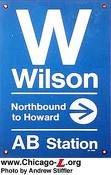A bus-rapid transit system with higher fares for faster rides. A CTA Red Line extension to 130th Street with distance-based fares. High-speed Internet service with a fee paid by businesses and individuals.
Those are just a few of the “transformational” projects that might be bankrolled by the “Infrastructure Trust” unveiled Thursday by Mayor Rahm Emanuel and former President Bill Clinton.
“We have a 21st century economy sittin’ on a 20th century foundation. And unless we modernize it, we ain’t gonna get moving,” the mayor told a news conference at the Carpenters Union’s Apprentice & Training Facility, 2141 S. Union.
“Our needs are bigger than what Washington or Springfield can do any more. . . . Their money is declining. Our needs are growing. I can either look at that challenge and stare at it and hope it gets better or do something about it.”
Five financing giants have made preliminary commitments to provide as much as $1.7 billion in “initial investment capacity.”
The largest investment — anywhere from $200 million to $1 billion — is expected to be made by Macquarie Infrastructure and Real Assets Inc. That’s the Spanish-Australian consortium that paid $1.83 billion to lease the Chicago Skyway for 99 years in exchange for pocketing tolls and continuing to raise them.
Other major investors include: Citibank N.A.; Citi Infrastructure Investors; J.P. Morgan Asset Management Infrastructure Investment Group and the Union Labor Life Insurance Co.
The Infrastructure Trust is expected to launch with $225 million in energy-efficiency projects for government buildings, including the Cultural Center, the 911 center, the Woodlawn health clinic and Morgan Park High School.
In the case of “Retrofit Chicago,” it’s apparent how investors would get their return. By retrofitting 127 government buildings, the city expects to reduce its $170 million annual tab for energy consumption by more than $20 million while creating nearly 2,000 construction jobs.
But, many of the other projects the city is looking to finance will need to have their own financing streams.
That’s why the mayor specifically mentioned bus-rapid transit.
After Emanuel and Clinton unveiled the broad strokes, Chief Financial Officer Lois Scott talked turkey.
CTA riders could be asked to pay higher fares for buses with front and rear boarding that operate in dedicated lanes with traffic lights that turn green automatically, she said. Riders using a Red Line extension to 130th could pay higher fares the further they travel. And high-speed Internet service could be provided in exchange for a fee.
“The trust will look at projects that have a definable revenue stream or a savings level. To the extent those funding streams are not sufficient, we’ll evaluate other sources of financing,” Scott said.
“We have a lot of assets. We have the opportunity to re-think . . . how we can finance against those assets. . . . The trust enables us to issue debt on a taxable basis or a tax-exempt basis, against individual revenue streams or a pool of revenues.”
Later, a city spokesman said: “We are looking at transformative projects with the trust, not taking money from residents.”
In 2008, then-Mayor Richard M. Daley got $153 million in federal funding to launch a 10.2-mile bus rapid transit experiment in four pilot corridors.
But, Chicago was forced to forfeit the money after the feds refused to grant a 13-day extension to approve one of the burdensome strings attached: congestion reduction fees for downtown parking and deliveries.
More recently, Emanuel has talked about using a $2-a-day “congestion fee” on downtown parkers to finance express bus lanes linking commuter rail stations to Michigan Ave. and Navy Pier.
The Clinton Foundation is currently involved in 250 projects in 47 cities around the world to make lighting and municipal buildings more energy efficient. That, and his long-standing ties to Emanuel, is what drew him to Chicago on Thursday.
“What you are doing here is the first infrastructure bank using private capital that any city in the United States has established,” Clinton said.
“This is a huge deal. And if you can do it, then every other city in this country of any size can do the same thing.”
Joe Schwieterman, a transportation expert at DePaul University, said it’s “very exciting that the private sector is interested in modernizing Chicago’s infrastructure” and that the city has “enough credibility that investors are willing to play ball.”
But Schwieterman said, “It’s really tough to make these partnerships work smoothly. When you have something like the tollway, you say, ‘Here’s the revenue. You’re gonna run this.’ When you start talking about city infrastructure, it’s less clear how the private firm is gonna earn back its money. I don’t mean to be a nay-sayer. There may be great answers for that. But, I haven’t seen many strategies in U.S. cities that have done this. If you look at infrastructure, the revenue stream is so limited.”
Emanuel, Clinton announce $1.7 billion trust for Chicago projects
By Fran Spielman City Hall Reporter fspielman@suntimes.com March 1, 2012
Citizens Taking Action www.CTAriders.org
for transit dependent riders
http://www.suntimes.com/news/cityhall/10986386-418/emanuel-clinton-announce-17-billion-trust-for-chicago-projects.html
"CTA riders could be asked to pay higher fares for buses with front and rear boarding that operate in dedicated lanes with traffic lights that turn green automatically, she said. Riders using a Red Line extension to 130th could pay higher fares the further they travel. And high-speed Internet service could be provided in exchange for a fee."


